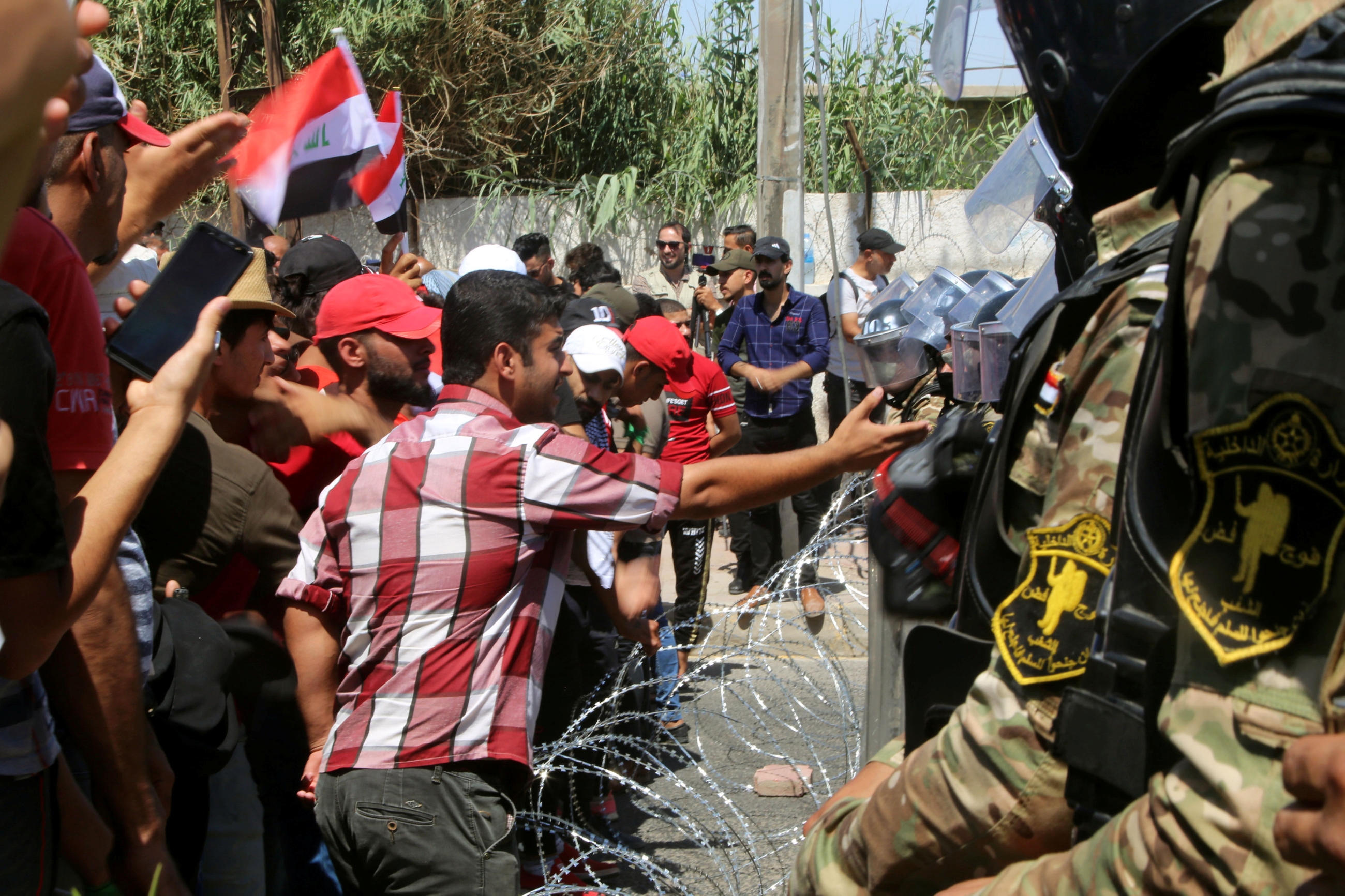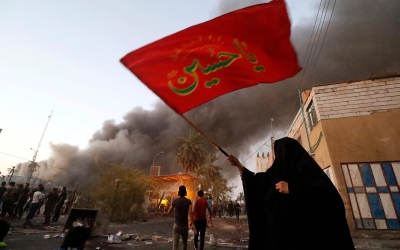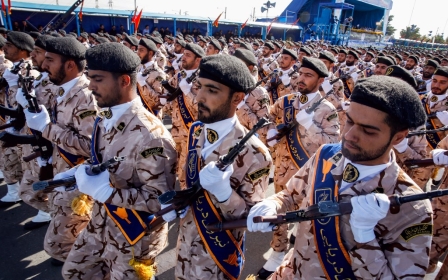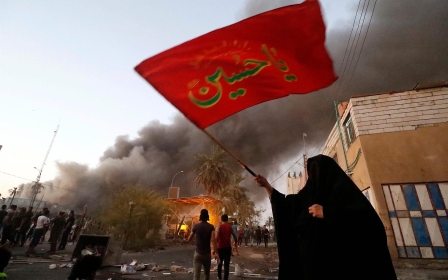Basra: Protests erupt over corruption, unemployment and power cuts

Demonstrations erupted in Basra on Thursday morning against unemployment, power cuts, a lack of water and the overrepresentation of foreigners in the local oil industry.
The demands echo protests from last summer in the impoverished southern province, which saw mass unrest, dozens killed and the torching of the Iranian consulate and other local municipal buildings.
Video released by local activists showed dozens of mostly young protesters facing off against riot police, separated by barbed wire, outside the Basra governorate building.
Protesters chanted: "We're at your service, O Hussein!", invoking the name of the grandson of the Prophet Muhammad, who Shia view as a martyr.
Local news outlets reported that the previous night, demonstrators had placed car tyres by roads in preparation for Thursday's protest but that police had come and confiscated them.
Basra's summers, in which the temperature regularly reaches over 50C, have been made increasingly unbearable due to a lack of pottable water and power cuts, which prevent the use of air conditioning.
The once-majestic canals of the city, Iraq's second largest, have become fetid and filled with garbage.
Locals blame rampant corruption and political deadlocks in Baghdad for the failure to resolve the problems and improve infrastructure.
Other protests have taken place around the south.
In neighbouring Dhi Qar province, students at the local university protested against electricity cuts on 28 May, while on 4 June there were protests outside an electricity company in Qurna, north of Basra city.
Last year's protests cost former prime minister Haider al-Abadi his job. The current prime minister, Adel Abdul Mahdi, oversees a shaky coalition and a cabinet which has yet to be fully formed more than a year after elections in May 2018.
"Mahdi's fear is a repeat of 2018 and that he will fall from office," Iraq analyst Joel Wing told Middle East Eye.
"He's in a far weaker position than Abadi with no coalition behind him but rather two competing lists."
Rocket attacks
With temperatures in the south of Iraq soaring, the political temperature has also been heating up in the region as a whole.
Tensions between Iran and the US, including the apparent shooting down of an American drone by Iranian forces on Thursday, have been spilling over into neighbouring Iraq.
On Wednesday, a rocket hit a site used by foreign oil companies, including US energy giant ExxonMobil, near Basra, wounding three people.
It marked the fourth rocket attack in a week against US assets in Iraq. Although no one has claimed responsibility, analysts have been quick to point the finger at Iran-backed armed groups in the country, who hold particular sway in Basra.
Dia al-Asadi, a former MP close to the popular and powerful Shia cleric Muqtada al-Sadr, told MEE last week that a clash between the US and Iran would undermine Iraq's already fragile situation.
"If there is any conflict between the US and Iran, the country that will be most affected will be Iraq," he said.
"It is not easy for the US to separate Iraq from its neighbours - even though we sometimes criticise the Iranian policies when it comes to Iraq.
"But still, Iran is one of the major neighbours of Iraq and the US militarily confronting Iran will raise people's sympathy with the Iranian regime and they will try to the defend the Islamic Republic - so this will worsen the situation."
Middle East Eye delivers independent and unrivalled coverage and analysis of the Middle East, North Africa and beyond. To learn more about republishing this content and the associated fees, please fill out this form. More about MEE can be found here.





